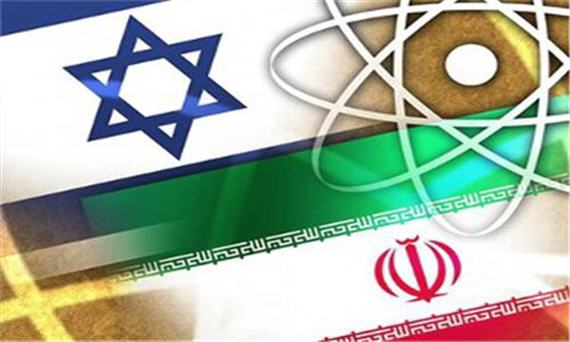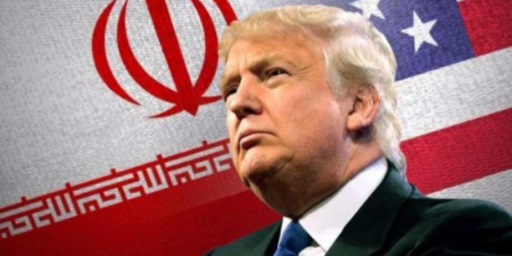Heading Off the Stupidest War
Would a formal guarantee of Israel's security deter Iran from whatever nuclear weapons development program it has?
In his proposals for preventing “the stupidest war”, an “additional and self-generated war” with Iran, Zbigniew Brzezinski, formerly National Security Advisor to President Jimmy Carter, in an op-ed in the Washington Post proposes something that the U. S. has so far resisted:
An Iranian military threat aimed at Israel or any other U.S. friend in the Middle East would be treated as if directed at the United States itself and would precipitate a commensurate U.S. response.
For some time I have opposed attacking Iran on grounds very much along the lines suggested by Dr., Brzezinski, among them that an attack to eliminate or even appreciably slow an Iranian nuclear weapons development program is unlikely to be successful and that Iranian retaliation against such an attack would be inevitable. To the best of my knowledge every wargaming of an attack on Iran has resulted in Iran retaliating using both conventional and unconventional means across a wide area of the Middle East not limited to Iran’s immediate vicinity. Iran is not Iraq or Libya. In my view there is no such thing as a limited war with Iran, the only sure way to eliminate whatever nuclear weapons program Iran has is regime change, and the American people do not have the stomach for a war with Iran that includes ground warfare with substantial U. S. casualties, even to prevent Iran from acquiring nuclear weapons.
I have several questions about Dr. Brzezinski’s suggestion. First, don’t we already implicitly guarantee Israel’s and the Kingdom of Saudi Arabia’s security along the lines that he suggests? Would a formal guarantee strengthen our position? Second, to the best of my knowledge we only extend such formal guarantees to our NATO allies. Is it really prudent to extend those guarantees beyond NATO?







Don’t we already effectively have the same guarantee vis a vis South Korea and Japan?
Do we have a formal security arrangement with them? I see some distance between an implicit guarantee and an explicit one.
Question: What if it is Israel that initiates hostilities?
What about making it global? Declare that the first use of a nuclear weapon anywhere on Earth will prompt a response by the US. If people believed it we’d have put a crimp in nuclear proliferation everywhere.
Dave, if Iran uses nuclear weapons against Israel, Israel will hit Iran with up to a couple of hundred nuclear weapons. That’s the guarantee. As for Saudi Arabia, please look at ‘Kuwait, Invasion of, by Iraq, 1990’.
@OzarkHillbilly: “Question: What if it is Israel that initiates hostilities? ”
In any objective look at the situation, Israel is in much better shape to hit Iran and get away with it than vice versa.
@Dave Schuler:
Treaty of Mutual Cooperation and Security between the United States and Japan (1960)
Mutual Defense Treaty with South Korea (1953)
FWIW, that took me all of 3 minutes on google to find out. But dont worry , this is OTB, you dont have to actually know any thing to publish here.
@Jib:
The language of the treaties you cite and that of the North Atlantic Treaty differ substantially. For example, I don’t find in either of them the diction of the NATO agreeement, that Dr. Brzezinski echoes, “an attack on Israel (for example) would be considered an attack on the U. S.”.
@Barry:
Barry, that was not the point of my question, my bad. What I was asking was whether we would be obligated to come to Israel’s defense even if they initiated hostilities.
As to what you said above, yes, this is true. It is also true that we have capabilities that Israel does not. That is why Netanyahu has been so strident about trying to get Obama to draw a red line.
Of course, that would mean that the US would have to treat any Hezbollah, Hamas, PIJ attacks on Israel as attacks on the United States. So, it would essentially put us in a state of low-level hostilities with Lebanon, the Palestinians, and a whole bunch of other states.
Unless we want to take the absurdist position that an Iranian missile from Tehran is an attack on the United States, but an Iranian missile from Southern Lebanon is someone else’s problem.
@michael reynolds:
I don’t think this works in the Iranian context, or with any nation that’s seeking nukes as a defensive versus offensive weapon.
Perhaps I’m naive, but it seems to me that in the case of Iran and Pakistan, nuclear weapons (beyond being a nationalist tool) were/are being developed as the proverbial “big stick” to ward off threats from the outside. To a degree this is also true in North Korea (though in that case they are also clearly being used to ransom political concessions and goods).
Last I heard, the Iranian sanctions are really biting. Maybe this year we can get concessions out of Iran.
Also too, I think Israel may be souring on the idea that war always works.
I think the case for patience remains stronger than the case for war.
Hard to top Vietnam for the “stupidest” war title.
That aside, a formal, NATO-style guarantee at first blush seems like it could be a panacea, but the problem is that unlike the Soviets during the Cold War the Iranian mullahs are batshit crazy. And if a mushroom cloud envelopes Tel Aviv it’ll be too late for WaPo op-ed writers to go: “Oh, shit, the Iranians called our bluff, that really sucks for the Israelis.”
Not that a formal security guarantee is a bad idea. It’s not. It’s something. It’s not nothing. But ultimately unless the Iranian people somehow manage to expunge the entire Iranian ruling class (don’t hold your breath) a preemptive war against Iran’s nuclear ambitions will be required. For reasons of which only Neville Chamberlain himself could be insouciant.
@mattb:
Not naive Matt, just correct. The dual lessons of Iraq and North Korea were not lost on the Iranians.
I simply do not believe this is so. I don’t think they are substantially crazier than the USSR was, or we have been at times (see also: Vietnam and Iraq the Sequel, not to mention some stuff during the Cold War that thankfully didn’t blow up in everybody’s faces).
I also think we need some sort of internet law about references to Neville Chamberlain. As an internet conversation concerning deterrance progresses, the changes of a Chamberlain appeasement reference approach 1. They start at 1 if Tsar Nicholas is around.
@Tsar Nicholas:
Got any evidence they are “bat-shit crazy”?
@Tsar Nicholas:
After watching last season’s Republican primary debates, the Iranian mullahs, by comparison, hardly seem bat-shit crazy.
@Tsar Nicholas:
I agree with Rob in CT, above. The Iranian regime is not crazy. You don’t have to take my word for it. That’s the consensus of the U. S. intelligence agencies, too. Just check the National Intelligence Estimates for the last half dozen years.
However, I think their sanity is different than, say, the sanity of the Soviet Union in 1970. For a comparison you should look to the Soviet Union of 1930 rather than the Soviet Union of 1970. Back then they were still expecting world revolution with the liberated workers of the Soviet Union at the vanguard.
@Dave Schuler:
In the 70s-80s, the Soviet Union, as far as its leadership went, was terrified that we would attack them. See, Able Archer 83, a NATO exercise simulating a nuclear strike on the USSR. The Soviets were petrified, thinking the exercise was the real thing. Whatever the Soviet posture was, mirroring our DefCon 2 or 1, they were at it. In the aftermath, President Reagan (the US did not participate in the exercise), when the depth of the Soviet anxiety was fully understood, began to seriously think about nuclear disarmament. He wrote in his memoirs, without mentioning AA 83 (but that was what influenced his thinking):
One wonders if the government in Tehran has the same mindset as the Soviet leadership.
@Tsar Nicholas: “..but the problem is that unlike the Soviets during the Cold War the Iranian mullahs are batshit crazy. ”
There has never been a g-d ounce of proof for this theory.
“And if a mushroom cloud envelopes Tel Aviv it’ll be too late for WaPo op-ed writers to go: “Oh, shit, the Iranians called our bluff, that really sucks for the Israelis.””
Are you an idiot? One hour later Iran would be covered by mushroom clouds
Ah, one of the things for which I can unreservedly praise Ronald Reagan. Nice one, Sam.
The Iranians are not “batshit crazy.” I also doubt they are totally, 100% sane. Nobody is, really. It’s a spectrum. Most people have at least some (usually unexamined) beliefs that are nonsensical. Some subset of those are harmful, or potentially so. When you have a theocracy, well, that probably does up the odds of magical thinking, sure. And yet, when you look at actions, there is no evidence that the Iranian regime is suicidally insane.
If I was an Iranian leader, I’d be genuinely terrified of “regime change” instigated by the USA. Consider the evidence in favor of this:
1. Helping put the Shan in power and keep him there.
2. The acrimony stemming from the 1979 revolution & hostage crisis.
3. The US relationship with Israel, and Israel’s stance on Iran.
4. Repeated statements by US political leaders, pundits, and otherwise influential people that add up to something rather similar to what Cato used to say in his speeches regarding Carthage.
[this list is obviously one-sided. It is not meant as a comprehensive review of the situation to determine who is the “good guy” and who is the “bad guy.” Rather, it’s simply an attempt to get inside the heads of some of the players in this drama]
Now it’s also true that if I were an Iranian leader I might attempt to defuse this via an agreement that involves surrendering pursuit of nukes in exchange for an explicit promise not to invade, bomb or otherwise mess with Iran (and possibly including some resolution of the Israeli-Palestinian mess, but that’s probably biting off way too much). Of course, if I advanced this argument, the Tsar Nickies of Iran would be comparing me to Chamberlain. And so…
Oh, for the ability to edit. Obviously missing from my list is #5: Iraq, the Sequel. Regime change, executed basically because it was doable, directly next door.
As always, I know what I know, but I know what I don’t know – foreign policy.
I find Michael’s comment intriguing in that (and I don’t want to put words in his mouth) it seems like a regional and slightly modified version of MAD. If the Iranians are rational (as has been voiced, but which I am dubious) it would seem a rational, if “big stick,” approach.
Oh, for pete’s sake! #6: Libya. Another example of regime change. It was very doable, so it was done.
For us, it was a fairly minor affair (though it still ticks me off). But viewed from the perspective of the government of Iran? It’s just another bit of evidence that if they don’t protect themselves with a trump card, their goose will be cooked the moment we figure it’s doable.
Regarding Michael’s idea… I like it. I think MAD works, and is applicable here.
I’d also like to see Israel’s nuclear arsenal recognized openly (instead of nudge nudge wink wink). That right there is a strong deterrant. If the Israelis still feel threatened (by Iranian nukes) and being clearly placed under the US nuclear umbrella would help, great, fine. Ditto other countries in the region.
Of course the worry of non-state actors remains.
@Dave Schuler:
You are correct in saying that the agreements we have with both South Korea and Japan are an implicit security guarantee, not explicit. The only treaty that is an explicit security guarantee is NATO, and even that does not promise nuclear retaliation in kind (at least not explicitly, although that could be considered somewhat grey area due to the NATO nuclear sharing arrangement.) Now, implicitly both South Korea and Japan (as well as NATO) fall under the U.S. nuclear umbrella…but there is a significant difference between an implicit and explicit guarantee.
One thing that I think is getting overlooked in the discussion of “if people want to be under the umbrella because it would make them more secure, so be it” is that extending that umbrella could encourage adventurism. If, for example, the Saudis were extended an explicit and public agreement that they were under the U.S. nuclear umbrella, they and the rest of the GCC might feel more empowered to act aggressively towards Iran, believing that the Iranians would be less inclined to retaliate due to the extension of the U.S. nuclear umbrella. I’m not saying that particular train of thought is necessarily a logical one, on anyone’s part, but it is a second order effect that bears careful consideration (along with several other possible second and third order effects) before any explicit/public security guarantee is extended. There’s a reason why extending those guarantees has been so limited historically, and there’s a reason why relatively volatile countries like Israel and the Saudis haven’t been granted one before, even if the implicit guarantee has been there.
Regarding the rationality of Iran’s leadership and their fear of being overthrown, here’s one more data point to consider…Ghaddafi came to an agreement with the West after the Iraq invasion to suspend his nuclear program and surrender his chemical weapons, in hopes of forestalling a similar “regime change” operation and in hopes of closer relations with the West. Less than a decade later the West/NATO assisted in overthrowing his regime. Obviously there are several other confounding factors here that make a realistic appraisal of the entire situation far more nuanced than that simplistic history…but I guarantee you that there are many in Iran’s leadership who view the events in Libya in much that light (and who view the decision by the West to forgo intervention in Syria being due in part to the regime’s possession of a significant chemical weapons stockpile.) Again, I’m not saying that is necessarily a completely logical or correct viewpoint, but I am sure there are many in Iran who see things that way…and who are allowing those views to guide their decision making with the Iranian nuclear program. Just things to consider.
@Tsar Nicholas: “If you send in troops make sure you have a plan to win and a plan to get out.” In Vietnam, we had neither.
“Win by attitrition” (Colonel Troutman)
Iran is quite rational and are quite experienced as a nation with us meddling in their affairs. I believe at this point that the leaders of Iran have already noticed how the USA deals with North Korea post nuclear. I’m quite convinced at this point the leadership is interested in a nuclear weapon as a big stick. They are selling the nuclear power aspect to the populace as a national pride issue. “Look at the mean American’s keeping us down because we’re trying to make a nuclear reactor for power and medical reasons”. The harder we directly push the more the populace seems to support a bomb. Sanctions are hurting though and creating some discontent with the leadership.
The leadership of Iran is probably more worried about keeping Saudi Arabia and other historical regional rivals in check than dealing with Israel…
Not really. Indochina is simply not that important in the global strategic picture. The middle east is.
So the US is hugely in debt and even if we raise taxes greatly will have to cut spending and some people want to add another country or even several countries to the list of who we are going to defend? How about instead we start cutting some countries off the list instead of adding to them to the list.
It is no longer 1945 with the world in ruins and the US with bags of money, handing out guarantees while cheap when not needed gets very expensive in both lives and in money once they are called on.
The Israelis are big boys with big boy weapons, let them defend themselves. And there are bunch of other countries which should be added to that list.
@ Tyrell
Nor did we in either of Bush’s wars. Where were you guys? Oh, yea – you were cheering your lungs out…
Briefly mentioned in this thread is the Israeli threat to attack Iran’s nuclear capability. Also not discussed is the Iranian capability to defend itself from air attacks.
http://en.wikipedia.org/wiki/Islamic_Republic_of_Iran_Air_Defense_Force
This summary by Wikipedia shows the current picture of the Iranian air defense forces, and it is growing every month, especially with the advent of the Iranian copy of the S-300 Russian system, which has mobile launchers, and a network of radar detection, tracking and control capabilities, as well as quite a number of man-portable anti-air missiles and radar controlled gun systems for low level defense. Any attack by Israel must be able to counter this relatively modern collection of air defense systems, and they are dispersed around key targets for point defense and longer range defense using the 30-mile range of the older S-300 copy.
My earlier suggestion that the only way Israel could carry out a successful attack is to use EMP weapon launches to disable all of the radar, missile and fire control capabilities in successive waves, interspersed with the air and missile attacks seems to be borne out rather well. A more conventional attack could result in severe losses for the IAF, and hence a long term depletion of their defensive forces.
The decision to use nuclear explosions at medium to high altitudes that create the EMP pulses is a serious one, even if they do not result in any personnel deaths, because of the enormous worldwide stigma the use of nuclear weapons entails. It is indeed a fateful decision balanced as it is by the nuclear threat to the Israeli populace developing from Iran.
What many analysts seem to downplay is the Iranian effort to build a mobile anti air missile force that could be deployed to shoot down Israeli nuclear strike missiles just after launch. If the S-300 range and speed is any indication of the eventual capability of the Iranian copy, the missiles would reach mach 6 and about 100 miles in range. These mobile systems can be set up in Syria, Lebanon, and Palestine territories which afford positions well within range of Israeli missile launch sites. The same systems are slated to be used in point defense of important sites in Iran. Once this system is deployed in numbers, and once the Iranian nuclear effort bears its poisonous fruit, Israel would be under the gun. Hence the idea of attacking Iran soon, and the agonizing decision that Israel faces.